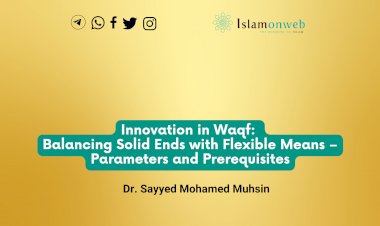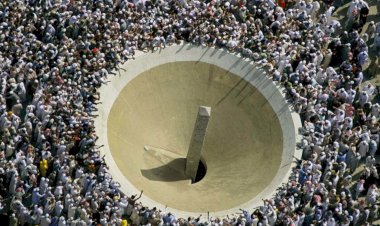Preliminary Proposal for Maqāṣidic Governance in Kerala (Part Four)
In order to strive towards a maqāṣidic governance in Kerala, the researcher would like to put forth some thoughts highlighting the remarks in the existing system and potential solutions, the details of which are given in the table below.
|
Remarks |
Probable Solutions |
|
Incompetent Team members in Waqf Board for maqāṣidic governance |
· Judicious selection of its members based on credentials and qualifications. · Appointment of knowledgeable and experienced people in Islamic jurisprudence, Islamic economics, waqf laws and governance. |
|
Waqf Board and its activities are not enough known to direct or indirect beneficiaries |
· Popularization of Waqf Board and its activities using the channels of the religious organizations. · Mass awareness programs about the State Waqf Board and its activities. · Maintain an engaging, open, trustworthy and dynamic relationship between Waqf Board and the mutawallī/Mahall committee. · Publicize the advantages and opportunities put forth by the Waqf Board, such as loans, grants, financial assistance, and opportunities for the lease. · The appointment of a skilled coordinator in each mahall for bridging between the Board and local management. |
|
Lack of systematic accounting process, corruption and misuse |
· Accountability and transparency in the functioning of the Board by preparing and implementing procedures and guidelines. · Waqf accounting and auditing system on a regular basis. · Efficient monitoring of mutawallī/Mahall committee. · Periodic review · Free from all sorts of corruption |
|
Misappropriation of waqf properties
|
· Investigation · Protecting waqf properties from encroachment. · Taking action against the illegal encroachments of waqf lands. · Conducting a detailed survey of existing waqf assets and documenting them. |
|
Delay in giving judgements in Waqf cases |
· Specification of a time frame and its strict implementation · Expediating the judgements on Waqf related cases. · Settling the legal constraints in waqf management. |
|
Disregard to Market value of Waqf land |
· Implementation of the Land Acquisition Act to Waqf land also. |
|
Incompetent mutawallīs |
· Training sessions for mutawallīs for improving their knowledge about aḥkām of waqf, their duties and maqāṣidic governance. · Organize workshops for the mutawallī/Mahall committee, thus equipping them to deliver their duties, flourish the waqf income and distribute to the deserving people in the community. · Educating about legal requirements/technicalities of respective lands and needs of the time. · Implement strict monitoring of the mutawallī/Mahall committee by designing work plans, regulations, legal administration, and timely action that must be submitted for audit every year. · If mutawalli is physically unable to discharge his duties, he needs to be changed or a representative must be appointed. · Income and expenditure of waqf properties need to be reported and shared with Mahall members. · Regular and systematic monitoring of the performance of the mutawallī/Mahall committee. · Systematic audit must be implemented. |
|
Insolvent nature of Waqf institutions |
· Cultivate, flourish, maximize use and benefit of Waqf assets/properties/lands · Projects for increasing income · Investments to flourish Waqf income · Generate revenue for the beneficiaries · Ensure the self-sufficiency of waqf institutions |
|
Underused/damaged waqf properties |
· Mutawallī/Mahall committee must use their discretionary power to identify the causes of damage and reach pragmatic solutions. · Develop a system for reporting income and expenditure every year, with plans about using waqf endowment and generating revenue for the beneficiaries. · Utilizing Imams and khatibs to make awareness about Waqf and its potential for the community’s well-being. · Appointing trained, skilled, and committed employees to administer and manage the waqf assets. · Remuneration for employees of waqf management. · Utilization of benefits and opportunities given by the Board, such as loans, leases and financial assistance. · |
Table 1: Preliminary Proposal for maqāṣidic governance in Kerala
In addition, the researcher hereby makes some suggestions for considering the course of maqāṣidic governance in Kerala. The suggestions are meant to illustrate some examples for using Waqf properties and funds. However, if endower has specified any particular field to be used, it needs to be considered and used for that in a comprehensive format. The suggestions are given in the table below:
|
No |
Five essentials in Maqāṣid |
Target Area |
Suggestions for using Waqf properties and funds from a maqāṣidic perspective |
|
1 |
Hifẓ al-dīn (protection of religion) |
Values |
1. Establishment of Islamic institutions. 2. Facilitation of religious practices. 3. Opportunity for Islamic education. 4. Funding for students, teachers, imām, mu’addin, etc. 5. Support for Da’wah activities. |
|
2 |
Hifẓ al-Nafs (Protection of life) |
Humanity |
6. necessities for leading a healthy life, such as food, home, healthcare, etc. |
|
3 |
Hifẓ al-Nasl (Protection of the family) |
Humanity |
7. Help the wedding of low-income families 8. Help pregnant women from low-income families. 9. Support for the expenses of child-delivery and post-delivery needs. |
|
4 |
Hifẓ al-Aql (Protection of mind) |
Knowledge |
10. Financial support for students, libraries, and educational institutions. 11. Support for research and intellectual activities, 12. Rehabilitation and care for addiction |
|
5 |
Hifẓ al-Maal (Protection of properties) |
Nature |
13. Plantation, agriculture and gardening. 14. Investments. 15. Use the money to help the needy create jobs and livelihood. 16. Development, social security. 17. Financial stability, wealth distribution, economic justice, altruism (īthār). |
Table 2: Suggestions for Using Waqf Properties and funds from the maqāṣidic perspective
Conclusion
Maqasid represents wisdom, higher objectives and ultimate goals imbued in the Islamic teachings. Therefore, the governance gets the shape of inclusiveness, relevance and dynamicity when it designs in the paradigm of Maqāṣid. Maqāṣidic governance of Waqf refers to the protection and administration of waqf properties and distribution of waqf income to the deserving people, fulfilling the objectives of Sharīʿiah and the goals of Waqf and meeting the needs of the time. In addition, it postulates to utilize the waqf income for the protection of dīn, life, family, intellect and wealth of beneficiaries. In a nutshell, the maqāṣidic governance of Waqf refers to attaining good benefits and eliminating all sorts of evils from the waqf institution.
This study has concluded that Waqf in Kerala can be further improved and equipped to achieve its goals through a maqāṣidic governance. Its ample prospects are yet to be explored in the context of Kerala. As part of this study, the researcher found that waqf governance has come to routinary procedures, as the local management is unaware of its possibility in social welfare. As a result, little attention is paid to it. Waqf properties have tremendous potential to change the lives of thousands of Muslims struggling to meet their basic needs. Awareness of Waqf and its potential role in social welfare must be conveyed on a ground level. For that, the local management, in the form of mutawallī and Mahall committees, should prepare their work plans.
In the light of preliminary analysis, two parties can be significant forces in the implementation of the maqāṣidic governance of Waqf in Kerala. (1) Kerala State Waqf Board and (2) mutawalli/Mahall committees. Both of them have the potential and scope for the application of maqāṣidic governance in discharging their duties and dealing with the issues.
To sum up, every authority is an amānah (trust), for which those in authority are accountable. To efficiently deliver this amānah, which includes the waqf institution, to the relevant parties without any compromise is the core element of maqāṣidic governance.
(This article is part of a research work which was originally published on AWQAF Journal, 22 (42). pp. 13-44. ISSN 1609-4662, published from Kuwait).
About Author:
Sayyed Mohamed Muhsin is an assistant professor of Islamic jurisprudence at International Islamic University (IIUM), Kuala Lumpur. He also serves as Editor-in-Chief of Islamonweb-English.
Disclaimer
The views expressed in this article are the author’s own and do not necessarily mirror Islamonweb’s editorial stance.
























Leave A Comment